Threat or Advantage? How Is AI Impacting CNC Manufacturing?

Artificial intelligence (AI) and the manufacturing industry, unlike other business sectors, is well-positioned to benefit from its implementation. CNC machining has long been the dominant technology in manufacturing services, but the introduction of Artificial Intelligence technology has threatened to replace CNC manufacturing processes.
Could AI (Artificial Intelligence Be Taking Over?
Artificial intelligence is no longer the domain of academic researchers. Machine learning and deep learning, on the other hand, are emerging as mainstream technologies that many enterprises are eager to adopt. This might benefit a wide range of businesses, including the industrial sector.
AI is ushering in a new age of industrial progress. A revolution has spawned three production dimensions: mechanical, electrical, and digital technology. The AI is now poised to drive the fourth revolution, known as "Industry 4.0".
When you think about artificial intelligence, the possibility of superintelligent computers and robots taking over humans concerns you. However, this is far from true.
Artificial intelligence is the functioning of algorithms that automatically optimize themselves as they go through a process known as machine learning.
The technology aims to transform the globe and redefine the way prototype production is done. There are several fascinating applications of CNC prototyping that are being driven by artificial intelligence.

How AI May Be Helping the CNC Manufacturing Sector
It is genuine and is currently taking place in the manufacturing sector. The use of AI technology has resulted in a considerable decrease in unexpected downtime and product design. Manufacturers are leveraging AI analytics to improve productivity, quality, and employee safety.
Let's look at how AI is altering the industrial industry.
Direct Automation
As industrial manufacturing transitions to mass production, they primarily employ artificial intelligence (AI). Robots can do repetitive tasks, gain expertise, construct automated solutions, design production models, offer high-quality results, and have no human mistakes.
27/7 Production
Humans work three shifts to maintain continuous output, whereas robots operate around the clock on a manufacturing line. With this skill, the firm may grow and extend its output to satisfy market demand.
Environment
Integrating artificial intelligence implies fewer humans performing risky and hard jobs. Having robots replace people has resulted in a low frequency of occupational accidents.
Better Products with AI Designs
Artificial intelligence is transforming the way goods are developed. In one way, called generative design software. Engineers and designers provide brief information as input to AI algorithms. They comprise information about the limiting characteristics, such as material type, available method of production, budget limits, and time restraints.
AI algorithms investigate a solution before recommending the best. They put the solution to the test using machine learning and provide more insight into which design performs best.

Adapting to a New Market
Artificial intelligence is a critical component of the Industry 4.0 revolution. Its applications extend beyond manufacturing operations. They also employ artificial intelligence to improve the production process by assisting businesses in anticipating market shifts. As a result, management will have an edge in developing a strategy plan to fight market waves.
Artificial intelligence generates market forecasts by analyzing a variety of patterns such as geography, macroeconomic considerations, political status, social-economic, and consumer behavior, among others.
The acquired information is critical to the manufacturing service sector since it directs the industry on issues of staffing, inventory control, raw material availability, and energy use.
What Is CNC Machining?
CNC refers to the usage of a computerized numerical control machine. It is a frequently utilized technology for a variety of manufacturing-related jobs. CNC machining is a manufacturing service sector technique that employs pre-defined computer instructions to drive existing machinery such as grinders, milling machines, and lathes.
How Is AI Affecting CNC Machining?
CNC machining, like any other industrial process, may go wrong. However, artificial intelligence (AI) is here to assist.

Less Machine Time
Machines produce defects for a variety of reasons, including part wear, equipment out of calibration, and even for no apparent reason. When this happens, it consumes time as the operator tries to find the source of the problem.
The key advantage of using AI technology on CNC machines is that it allows for self-diagnosis, which saves time. The machine learns about its typical functions. Thus, when a failure occurs, it is identified, and the program attempts to resolve the issue.
Use of Machines
Aside from using acquired data for diagnostics, more advanced Artificial Intelligence analyzes such data and adjusts the machine's parameters to maximize prototype manufacture. For example, if the gathered data reveal that reducing pressure results in a flawless completed item, AI instructs the CNC machine to make the necessary modifications automatically.
Use of Quality
The finished output from CNC production might occasionally be incomplete. Artificial intelligence can assist maintain output uniformity.
In Conclusion
Artificial intelligence has the ability to increase and broaden human capabilities, allowing enterprises to thrive more quickly and efficiently. The technology can address certain major internal obstacles that plague the CNC manufacturing service business, such as a lack of specialists to make complicated judgments, integration concerns, and information overload.
The prototype manufacturing process is favorably linked to other manufacturing services using cloud computing, which includes an AI optimization mechanism, diagnostic capability, and self-modification. This simply indicates that the future of the CNC manufacturing business will improve with the aid of Artificial Intelligence.
For more information on our Mitsubishi servo drives, motors, and systems, as well as drives, motors, and systems from other leading manufacturers, as well as other parts and components for your equipment and machines, please call CNC Tools Industrial Electronics at (956) 246-7411.
One of our knowledgeable customer service representatives can prepare a parts and components quote for everything you need for your equipment and machines, as well as help, arrange maintenance, repair, or installation service from one of our experienced technicians.
